Broad perspective on global food systems

Broad perspective on global food systems
In cooperation with SeedNL, Agrico organized a special international symposium on Wednesday, November 8, 2023 on the transformation of food systems. Food security, part of food systems, is one of our five Corporate Social Responsibility themes.
Geopolitics as the foundation of trade agreements and a fundamental change in our foreign policy mindset
Rob de Wijk is the founder of The Hague Centre for Strategic Studies (HCSS) and Professor of International Relations and Security at the Institute of Security and Global Affairs at Leiden University. HCSS conducts research on geopolitical, defence & security issues and is a strategy advisor to governments, international institutions and businesses. Rob de Wijk started our symposium by appealing for a broad perspective on global food systems, including having geopolitics as the foundation of trade agreements and a fundamental change in our – Dutch and EU - current foreign policy mindset. Pursuing strategic dependencies in foreign policy, instead of the current value-based approach. Hereafter we will summarise his analysis and calls to action.
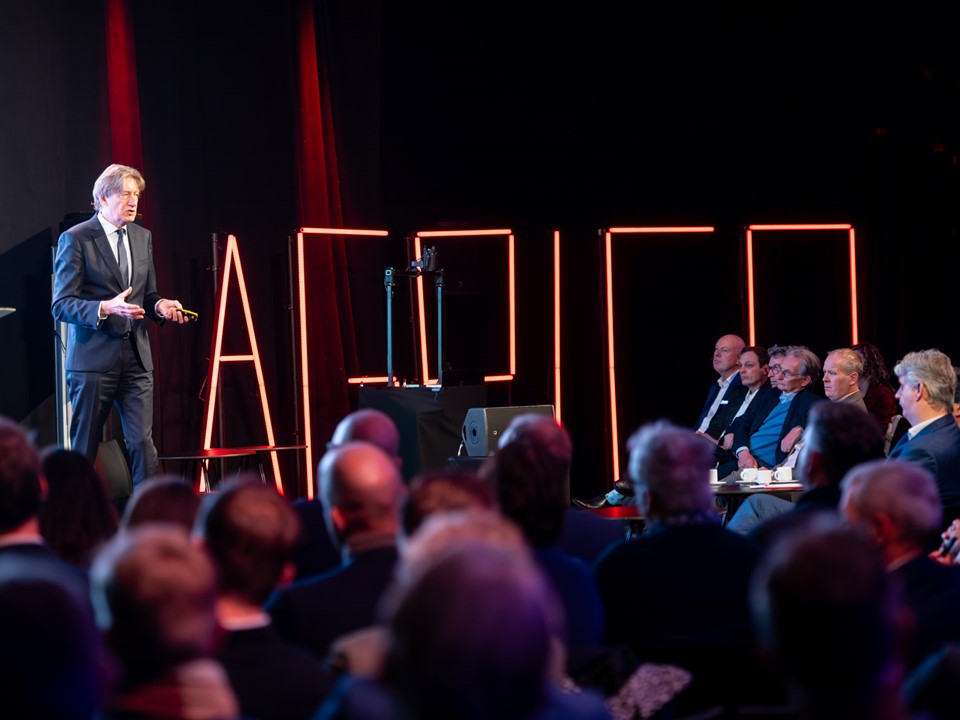
Geopolitics and food
Geopolitics and food are linked more and more. If the Ukraine war has made one thing clear, this is definitely the case. We should stop focusing on a single country or even a square meter in a particular country. Food is a global system, much more complex than you may think, and it's increasingly part of geopolitics.
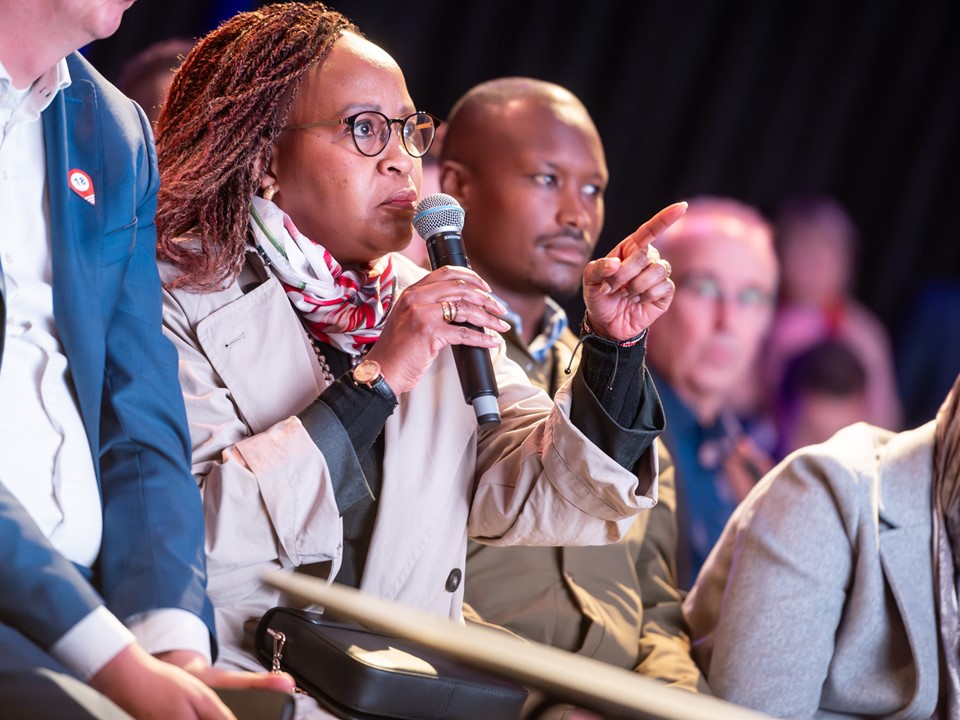
Geopolitics starts with understanding who the major players are. Well, that's obvious. It's the USA, the European Union, China and the non-aligned countries. In terms of the latter, India has become a leader. Russia has almost become China’s fossil state, because of its high dependency on China. China wants to change current global rules in line with its preferences and it has a completely different vision of how rules should be developed and set. That doesn't need to be a problem, but you have to adapt to the new situation.
The Ukraine war was a kind of watershed moment. We never thought and never believed that, in this part of the world, countries would use raw materials or food as political instruments of power, and now they do. We see complex dependencies between food, critical raw materials, and energy and now they are under attack. Critical raw materials needed for agriculture, especially for high-tech equipment, can be found in only a very limited number of countries: 80%-90% come from China, Russia and the Democratic Republic of Congo. In other words: China has a major stake, which is a big problem. Because of the changing world order, you see that some countries are now willing to use this as a political pressure instrument, which will affect the whole sector, whether you want it or not. This has been clear to the USA for many years, and the country decided to take action to reduce its vulnerability. This is something that is now being discussed within the European Union - despite the fact the world order is already changing - it's still extremely difficult for the EU to take appropriate action. To make matters even worse, in Europe we are seeing that a New Iron Curtain has been established between the EU and Russia, another major stakeholder in critical raw materials.
Potential disaster beyond description
The agri-food sector is a high-tech industry. That means that semiconductors really are at the heart of much of its production capacities and its business, and that will only grow over time. So, if this is the case, you should think about how to secure the supply of the semiconductors that the sector needs. Taiwan-based TSMC is the most important manufacturer of semiconductors in the world: about 90 percent of the high-end semiconductors are produced there.
There was an outcry because of the effects of the Ukraine war, but if something bad happens in Taiwan, we will have an economic disaster beyond description. This risk is at the core of the trade war between the USA and China, and to understand this you need to understand the semiconductor ecosystem. As explained earlier, the majority of critical raw materials – also for semiconductors - come from three countries. If the supply of rare raw materials from these few players to TSMC (but also to NXP or even ASML) is disrupted, a global crisis will occur. For that reason, we need to think about how to reduce the vulnerability of our dependence on those countries with critical raw materials. This includes needing more trade agreements.
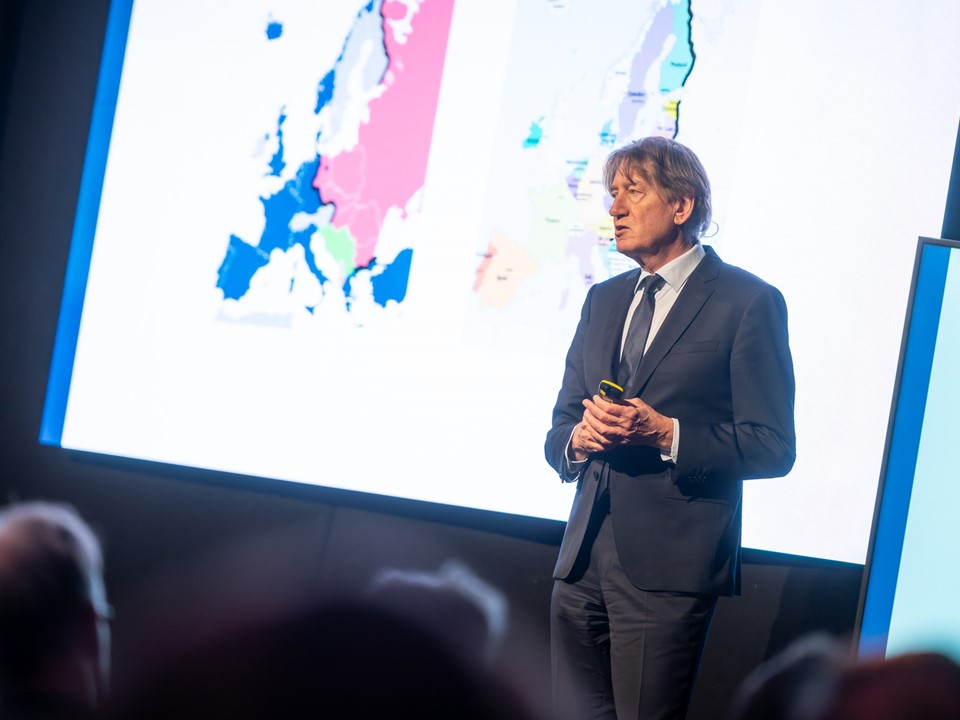
Trade agreements change of mindset: geopolitics instead of values
The trade deal between Australia and the European Union recently collapsed because of red meat. One of the key issues in the trade agreement was EU’s access to critical raw materials in Australia. The interests of a very small number of farmers in the red meat industry was more important than getting access to critical raw materials. We should understand the consequences of our current mindset in relation to trade agreements. It is linked to the new industrial revolution, the data revolution, which involves the Internet of Things, 5G, robotization, etc. We see that China is trying to control those activities, and for good reason: this is the future. The big question is who is going to win this new industrial revolution? Is it the West, the USA, or is it China? The champion of this new industrial revolution will set the standards of the game, for example, access to the Internet.
What we have been doing in this part of the world is linking export and investments, for example, of agricultural products, to values. In the new world, that is no longer sustainable. Values are important to us Europeans, but at the same time if you exclusively link foreign policy (and/or trade deals) to values, for example, what's happening in Xinjiang, you are really hurting yourself because we desperately need critical raw materials produced in China.
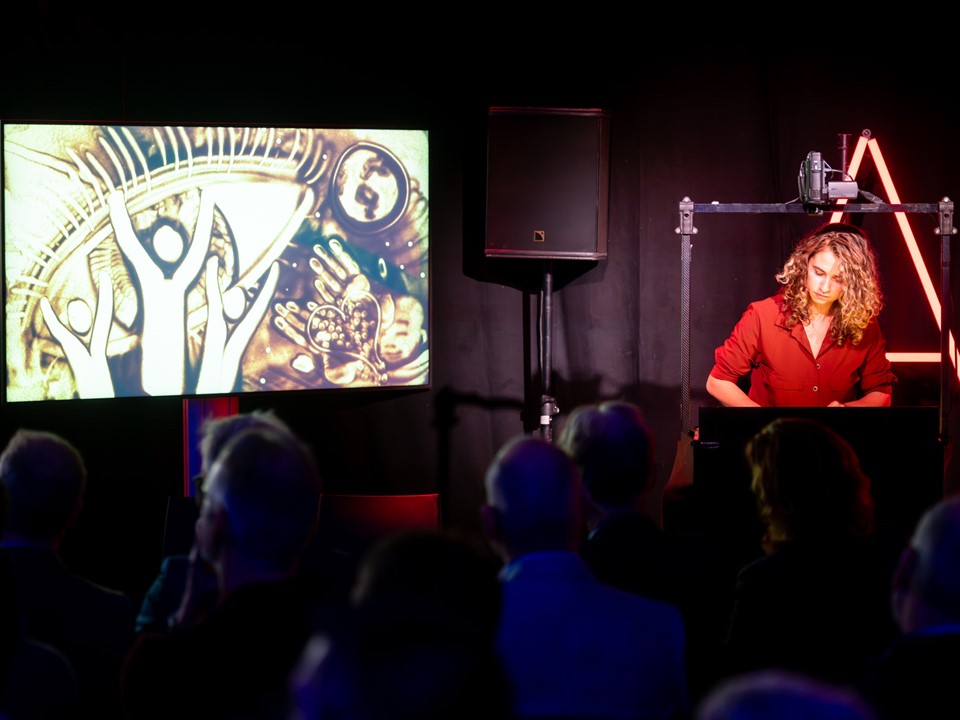
China is probably still on its way to being number one in the world, but it is experiencing some difficulties. Amongst others, food security is a serious problem. In 2018 China concluded it is unable to produce enough food for its own population. China’s food security problem is growing, because of climate change, its urbanization, the decrease in arable land and its low productivity due to the great number of small producers. China is a state capitalist country, it has a different view on how to do business. In a state capitalist country, by definition, the economy is political, and you can exercise political influence. This is something we can do too: we really should think in terms of how to use our agricultural sector to put pressure on another country. You may think that’s immoral. Well, not entirely, because you can export your agricultural products in return for critical raw materials. Our big challenge is revealed: we have to change our mindset in foreign policy. It starts by acknowledging that we have to do business in a completely different way with other countries, such as China: foreign policy based on values is no longer viable.
What will happen to the Western Bloc, which includes Australia, after the next elections in the USA remains to be seen. If Trump or someone with similar views comes to power in the USA, we will probably have a problem. We didn't learn from the Trump years, we did nothing in Europe. We had a discussion about open strategic autonomy which is, of course, important for us Europeans, but implementation thereof is not very impressive. We know from history that if you have international or global blocs, trade becomes more difficult. If you want to influence developments as a trade bloc, you have to stick together, you have to work together. Now think back to the collapsed trade agreement with Australia: this notion is completely lacking in the Dutch political debates. Everybody says: "look, it's important to do business with other countries and we have to cooperate", but the geopolitical aspects of this are lacking. That is a big problem, because what is happening now in the world is all about geopolitics.
If you want to defend your position or you want to have access to raw materials or the market, then you should work together. You have to have trade agreements whether you want them or not, and then you can protect your welfare and also your security. In order to do so, we have to change our position in order to get access to the raw materials. We simply cannot always dictate to other countries how they should behave. Instead we must put geopolitics at the foundation of trade agreements, instead of values.
Great Power Competition: pursue strategic dependencies
Because of these geopolitical dynamics, free trade is under attack everywhere in the world. In Europe, we have a bigger problem than others and that is because of the high energy prices. We already see that part of the agricultural industry is looking to countries outside the European Union because of cheaper energy. On top of this, the EU’s Green Deal and Fit for 55 plans weaken the EU’s competitive strength. It could reduce agricultural output by 20 percent, and that makes us extremely vulnerable and dependent on countries outside Europe. Is this what we want, yes or no? It is frightening that there are absolutely no sizeable debates about this, whereas we should be debating both in the Netherlands and in the EU. On such strategic topics, the USA does a much better job, because they are less ideological than we are.
Our current Great Power Competition has major consequences for the EU and the Netherlands. It requires a completely different mindset with respect to the EU’s industrial policies. We need to simplify our existing complex procedures and we must accelerate our slow transformation speed. This in itself is a major challenge, but there are some challenges in addition to this. ‘Not in my backyard’ is a very famous one, especially in the Netherlands. If you look at the extraction of critical raw materials in northern Sweden, there are huge deposits. There are also usually deposits in France too. Yet protests are huge and awareness about the consequences for the EU’s strategic position in the Great Power Competition is scarce.
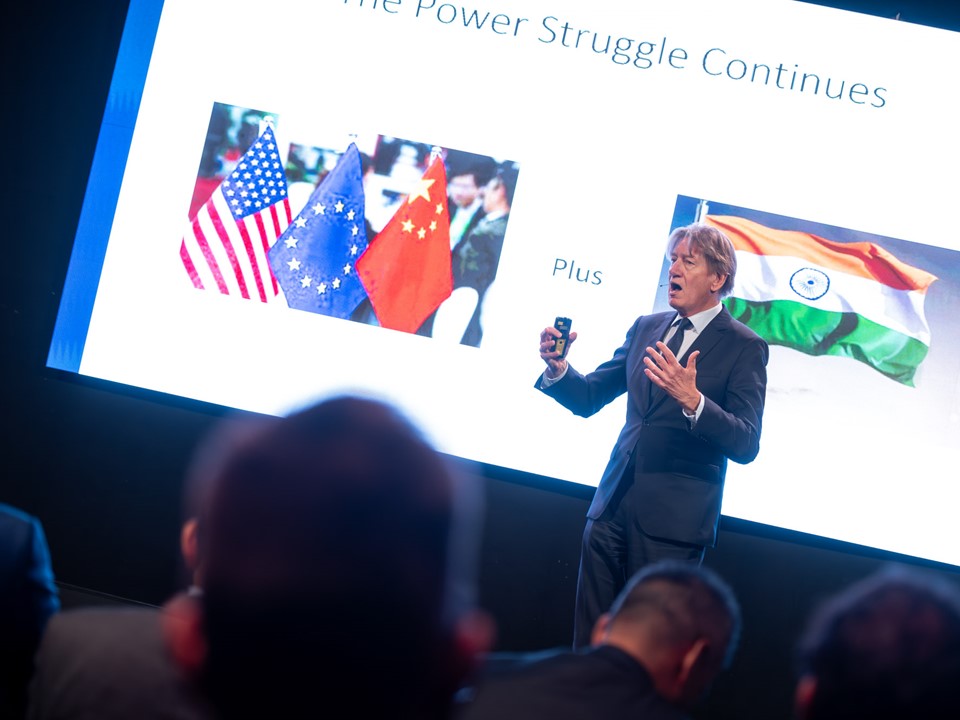
I suggest pursuing strategic dependencies. That is something we should do. If there is a problem in China with feeding its own population, then take advantage of it. I know this sounds unpleasant, but I think we have no other choice, and it clearly fits into the new world order. Agriculture is one of the very, very, very few European sectors in which the EU can achieve strategic dependencies. We now hardly have any industry. ASML will take us so far, but agriculture is key to strategic dependencies. The conclusion is that we have to come up with a vision, a vision that is not related to the number of cows or the size of the agricultural sector in Europe or in the Netherlands, let alone in a specific location in the Netherlands. This is about a broader perspective on food systems. You have to come up with an idea where you start globally and then translate this to the local situation, then look at how this local situation can contribute to the global food system. I think that is something that would be a very good start if we could do that, and at the moment that is completely non-existent in Europe, but also especially in the Netherlands.
Call to action: raise awareness and put pressure on policymakers and the public
Usually, when I’m invited to talk, I won’t cheer you up because this is usually a story that requires you to act. Action is absolutely necessary and you must start thinking from a broader perspective throughout the sector.
Raising awareness amongst politicians is key. The agricultural organizations, LTO, for example, should play an important role here. We need to explain the consequences of drastic measures, what this means for the added value for Dutch economy and feeding the rest of the world. We need to explain the complex dependencies, that isn’t only potatoes, but also about high-tech and access to critical raw materials and semiconductors. Elaborate how difficult it is, and how complex it is, and present the huge consequences if decisions are made that are too easy and founded on an underbelly or just a belief.
Finally this also means putting pressure on policymakers and the public to become less normative. The tendency in the Western world to lecture the world - those days are over. This requires a fundamental change in thinking about foreign policy and policy execution that is adjusted to the new world order and fits our Great Power Competition.
